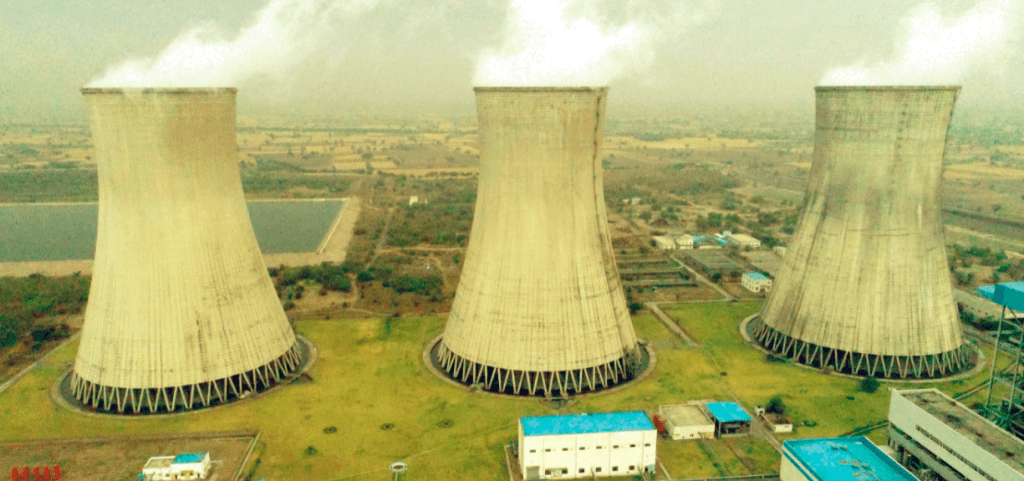Workers on 'War Footing' to Get India Coal Plant Operating
One of the largest coal-fired power plants in India—beset by technical issues that have knocked it offline and contributed to a power crisis in the Punjab region—is set to resume operations by the end of July, according to the utility subsidiary of the India-based mining company that leads the project.
Talwandi Sabo Power Ltd. (TSPL), part of the Vedanta Limited group, in a statement issued July 10 said the three-unit, 1.98-GW Talwandi Sabo Thermal Plant at Banawala village in the Mansa district is expected to be fully operational within three weeks. The company said it had been waiting on equipment needed to resolve issues that caused the plant to shut down. TSPL said the problems were due at least in part to concerns with the country’s coal supply, with inventories impacted by the COVID-19 pandemic.
Shipments of coal from Coal India Ltd., the state-owned coal mining and refinery group considered the world’s largest coal producer, reached a four-year low earlier this year as pandemic lockdowns crushed demand. The industry also has seen a surge in COVID cases among miners, which has impacted mining operations. TSPL said the Mansa plant had been forced to use coal with a higher ash content, which led to operational issues.
The TSPL plant originally came online when Unit 1 was commissioned in November 2013. The other two units entered commercial operation in 2014 and 2016, respectively.
Power Shortages
The power crisis in Punjab has come during a period of peak summer demand for electricity, with temperatures recently and again this week rising into the triple digits, amid a later-than-normal start to the monsoon season. Both urban and rural areas have experienced load shedding of the electricity supply. Punjab Chief Minister Amarinder Singh this month ordered government offices to reduce their hours, and officials also banned the use of air conditioners, calling the situation an “unprecedented power shortage.”
The Punjab State Power Corp. Ltd. (PSPCL) as part of its efforts to curb demand has reduced the power supply to local industries, including steel mills and other factories. The government said electricity demand in the region has gone higher than 14 GW per day. Singh said the area’s agricultural sector needed to be a priority for the power supply, noting that farmers were losing paddy transplantation time due to blackouts. The region is home to many large rice-growing operations; India is the world’s second-largest producer of rice, and is the world’s largest rice exporter.
Indian officials earlier this year said the country would look at building new coal-fired power plants to meet increasing demand for electricity, even as India sets targets to reduce its carbon footprint.
Restart Timeline
TSPL said its engineers “are on war footing” to get the Mansa plant back online. “The components have already arrived from China and shall reach the plant within a day,” read the TSPL statement published Saturday. “Thanks to CMD [chairman and managing director], PSPCL [was able] to get it cleared early from the customs. It is expected that within next week two units shall be functional and by the end of this month, all the three units will be operational.”

The 660-MW Unit 1 at the plant reportedly had an “unprecedented failure” in March of this year. TSPL in its statement said the problem “was communicated to PSPCL and they have been supportive in early restoration. Usually, such technical breakdown takes about a year’s time for restoration, however TSPL has spent manifolds amounts to ensure that the components are delivered within 3-4 months’ time.” The company also said problems that caused the utility to take the other two units offline last week are being resolved.
“In an unprecedented chain of events, the current breakdown of two of our units is unfortunate; restoration of one of these is expected within 48 hours, while the other one might take a little longer,” the statement read. “We are targeting all the three units of TSPL to be operational by the end of the month and functional to the full capacity.”
Problems with Coal Supply
TSPL in its statement said engineers from General Electric, Siemens, and Bharat Heavy Electricals Ltd., along with a group from South Korea, “are diligently working day and night along with TSPL engineers to identify and rectify the technical snag.” The company said, “One of the major reasons for such frequent breakdown is owing to import coal restrictions and to the challenge in getting import substitute coal from Indian coal mines. This has led to dependence on usage of domestic coal which has high ash content. Despite PSPCL’s support to get supply of import substitute coal, we have not been able to get adequate low ash coal, and high ash content coal results in frequent unit breakdowns.”
PSPCL on July 8 imposed power cuts of more than six hours in some parts of Punjab; other areas were without power for three to five hours. The electricity shortage has been exacerbated by the July 7 shutdown of a 210-MW unit of the Ropar thermal plant in Punjab due to a leaking boiler.
—Darrell Proctor is a senior associate editor for POWER (@POWERmagazine).